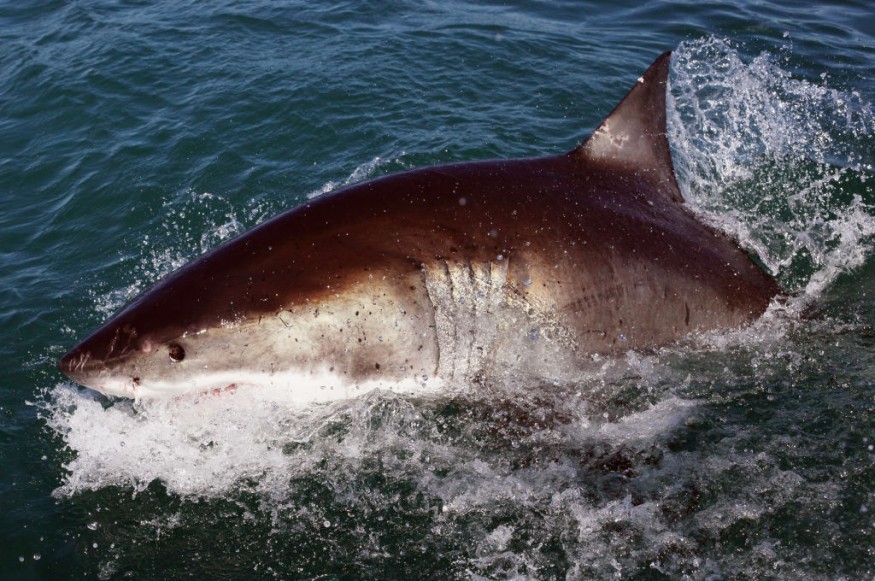Great white sharks were seen devouring a floating dead humpback whale off Nantucket, Massachusetts, this week.
The cause of the whale's death remains unknown as the banquet had already started when it was first seen and when local authorities arrived at the site.
This came several days after the first official great white shark sighting of the season in Massachusetts was reported on Sunday, May 29.
Beachgoers observed that a lone great white shark was eating alive a seal near the shore off Great Point Beach in Nantucket.
For the New England, the start of the US summer season is associated not only with surfing and sun bathing but also sightings of great whites in the area.
The risk of shark attacks on human also resonate due to previously reported cases of related fatalities and injuries from the ocean predators in Nantucket.
Humpback Whale Carcass

Three great white sharks were recorded consuming the dead whale near Tuckernuck Island off Nantucket on Wednesday, June 1, according to the Sharktivity app of the Atlantic White Shark Conservancy.
The whale was likely already lifeless even before the apex predators.
There were no immediate reports of additional sharks or other marine animals joining the shark buffet at that time.
The Facebook page NOAA Fisheries New England/Mid-Atlantic on Wednesday resorted to the social media platform to post about the incident, which showed the incident about the dead whale floating in the Madaket Harbor area near Nantucket, an island off Cape Cod in the said state.
The U.S. Coast Guard assisted the Marine Mammal Alliance Nantucket after coordinating with the NOAA Fisheries.
After careful assessment, the local officials determined that the humpback whale's size was approximately 40 feet long.
The size of the massive marine mammal was only an estimation since it was already in the state of decomposition.
Furthermore, the picture on the FB post showed the trio sharks were no longer in the area and only left a portion of the whale carcass.
Massachusetts Shark Attacks
The renewed presence of the sharp-toothed animals and sightings of them in Massachusetts' Cape Cod peninsula poses yet another risk off great white shark attacks not only on marine animals but also to humans.
After more than 80 years, the first lethal shark attack occurred in the state back in September 2018 when a shark bitten a man in the waters off Newcomb Hollow Beach in Cape Cod.
The victim later died in the hospital due to a sustained wound from the shark bite.
In October 2018, a related incident transpired off a beach in Truro, Massachusetts, where a swimmer was injured following a shark attack.
Cape Cod Shark Safety
Due to the shark threat, the National Park Service have issued multiple "shark safety measures" for the protection of the public, especially beachgoers in Cape Cod.
These measures include avoiding areas where seals or schools of fish are present, limiting splashing to avoid attracting sharks, and following flag warnings and signs at beaches.
Most importantly, the US agency emphasized the importance of staying near the shore in more shallow waters.
© 2025 NatureWorldNews.com All rights reserved. Do not reproduce without permission.





